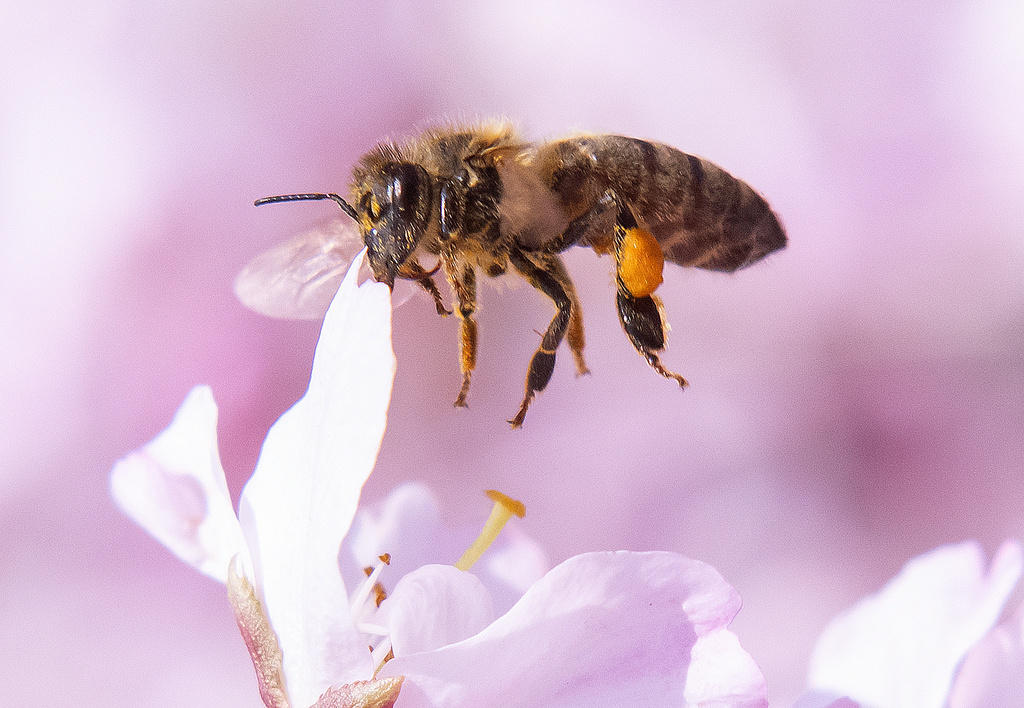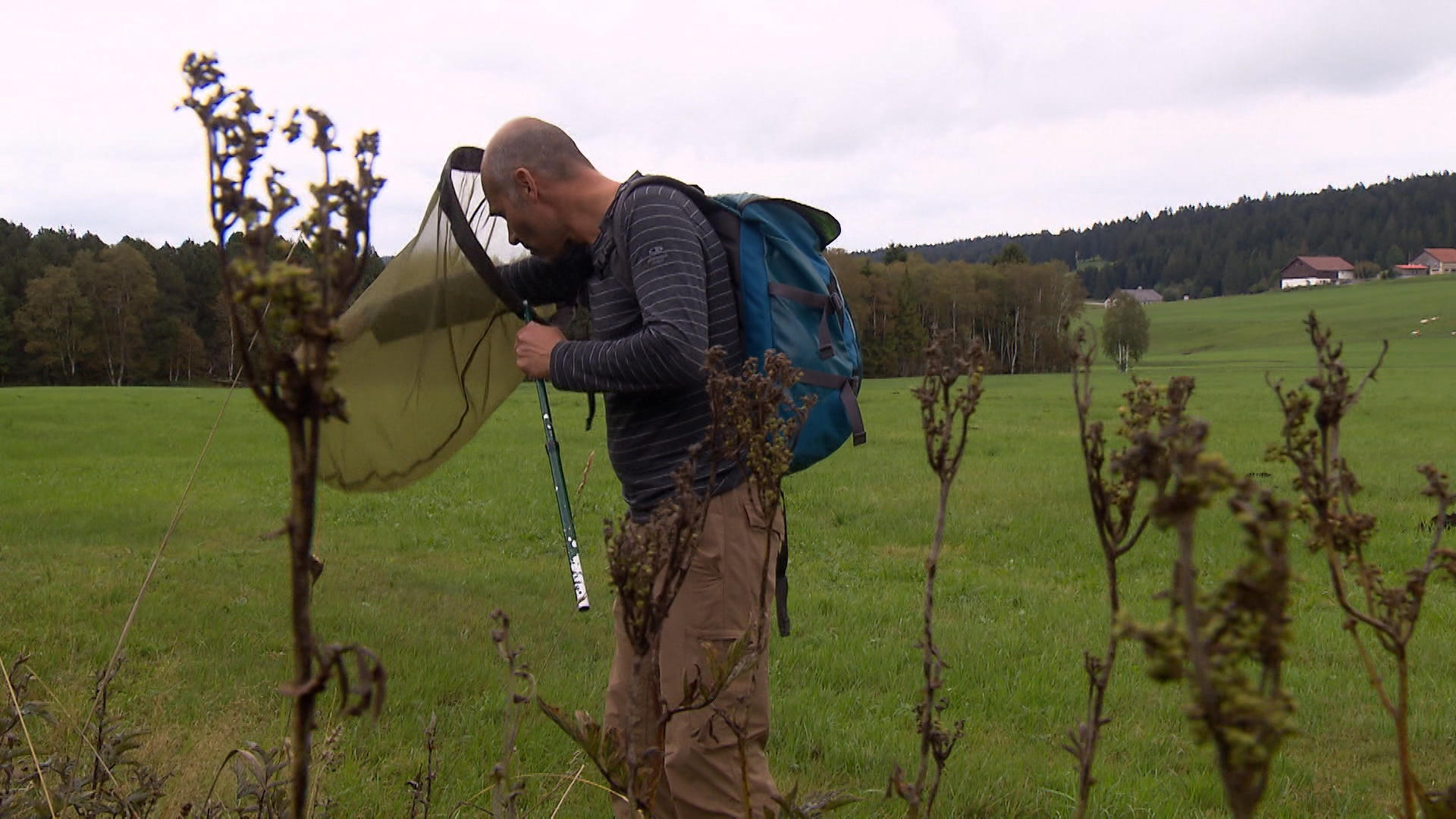
Swiss scientists call for action on disappearing insects

Researchers at the Swiss Academy of Sciences have sounded the alarm on disappearing insects in Switzerland and Europe, calling for urgent action to tackle the causes.
Sixty percent of insect species that have been studied in Switzerland are in danger, say the scientists. They are most in danger in agricultural areas and aquatic environments, according to informationExternal link published by the Academy’s Biodiversity Forum.
The decline of insects can have disastrous effects, including on other species. The researchers note that since 1990 the number of insect-eating birds has also declined by 60% in rural areas.
Disappearance of insects reduces pollination of plants and degrades the soil, say the scientists. The yield and quality of more than 75% of the main useful plants in the world depend at least in part on insects.
The dramatic decline of insects is due not only to massive use of pesticides and fertilizers, but also to the destruction of their habitats and light pollution.
Insect disappearance has been widely documented scientifically and the causes are known, say the researchers. For example, a long-term study in Germany found that the biomass of insects has declined there by 76% in the last 30 years.
The Biodiversity Forum says what is needed is not only more research but urgent action on the known causes.

More
In Switzerland insects are dying out at a worrisome rate

In compliance with the JTI standards
More: SWI swissinfo.ch certified by the Journalism Trust Initiative

















![The four-metre-long painting "Sonntag der Bergbauern" [Sunday of the Mountain Farmers, 1923-24/26] had to be removed by a crane from the German Chancellery in Berlin for the exhibition in Bern.](https://www.swissinfo.ch/content/wp-content/uploads/sites/13/2025/12/01_Pressebild_KirchnerxKirchner.jpg?ver=a45b19f3)











You can find an overview of ongoing debates with our journalists here . Please join us!
If you want to start a conversation about a topic raised in this article or want to report factual errors, email us at english@swissinfo.ch.